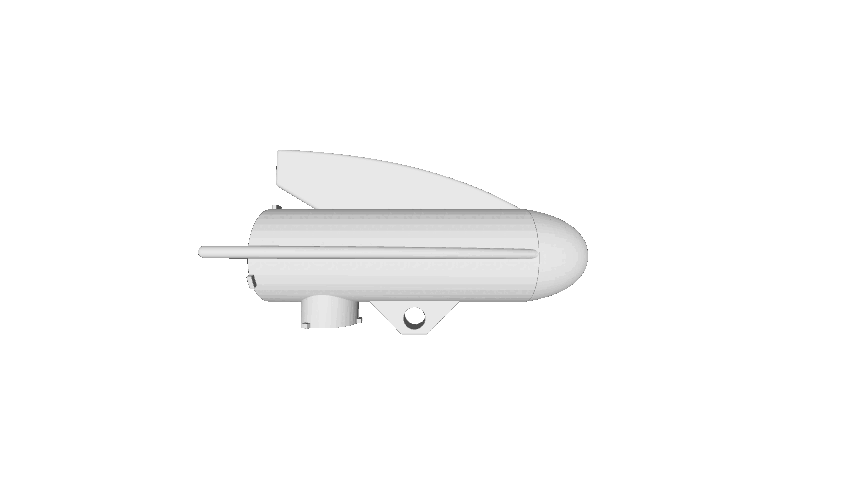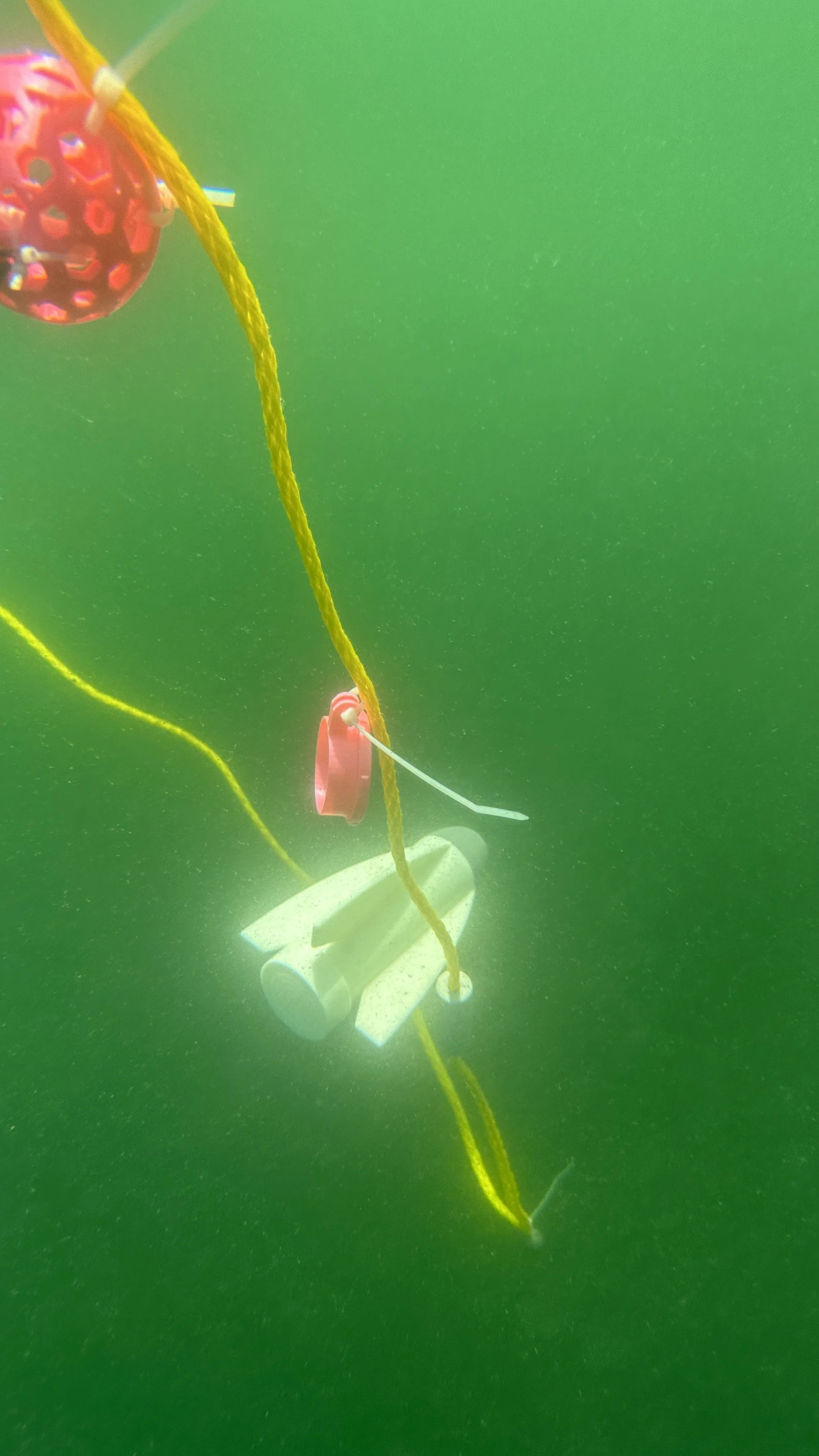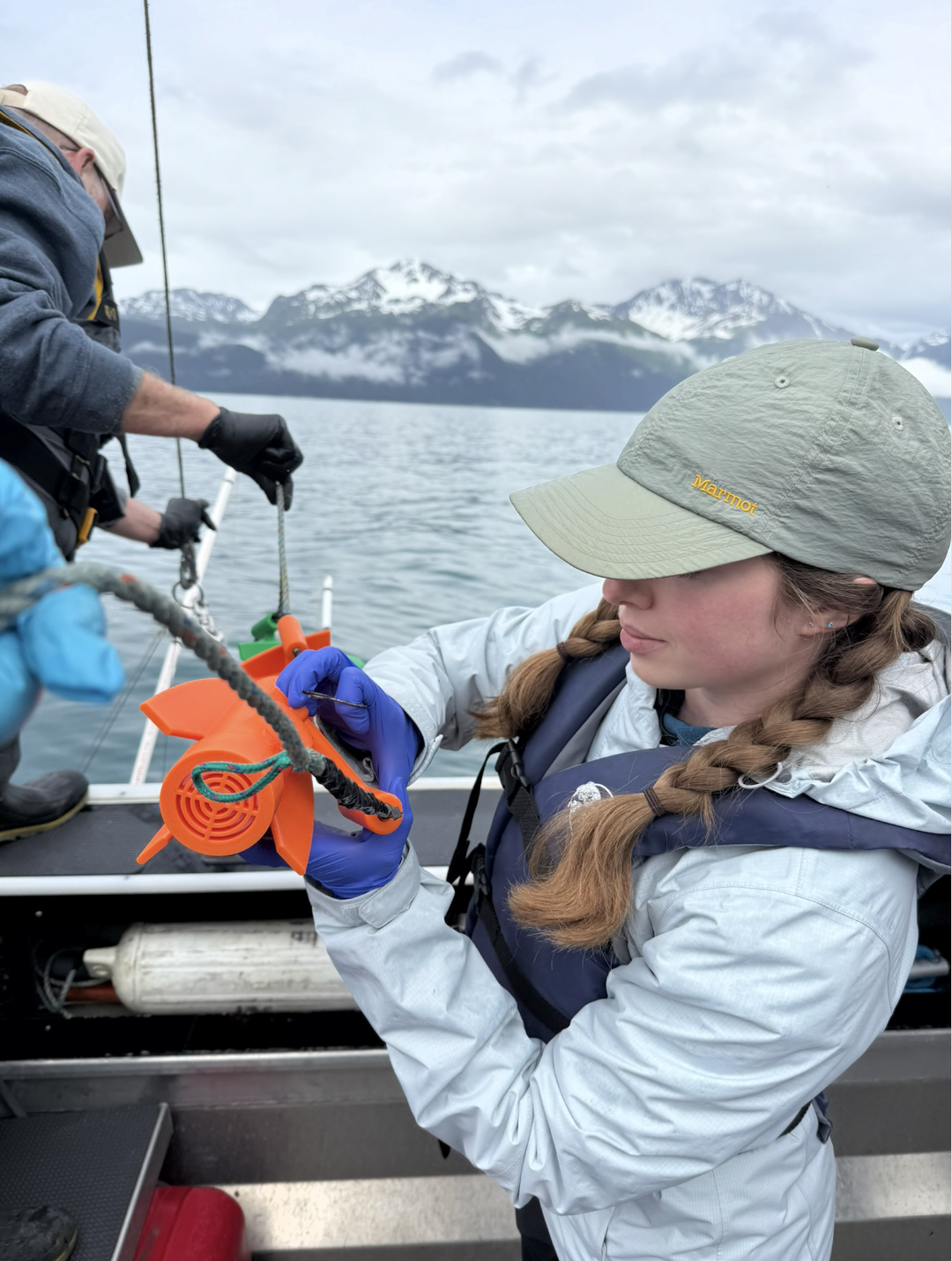
PESCA: Passive eDNA and Sediment Collection Apparatus
Novel environmental DNA passive sampling technology.
-

Applications
PESCA was designed by UAF Mechanical Engineering undergraduates. We conducted pilot studies in the lab and field to verify sediment and eDNA collection.
PESCA is designed to be deployed for any desired period of time and align with water currents in marine environments, or be positioned statically to effectively sample flowing water in rivers and streams. PESCA enables the ability to sample overnight, over a tidal cycle, and in remote field environments. PESCA eliminates the need to manually pump water, which can be time consuming and require electricity, battery packs, etc.
The sediment cap feature allows for the comparison of sedimental DNA and aquatic DNA in environments with high sediment loads (e.g., sand, glacial silt, mud).
-

Cost-Effective Technology
PESCA is 3D printed, resulting in affordable pricing. The devices can be sanitized in a bleach solution in-between deployments and reused.
PESCA can handle any traditional eDNA filter type (e.g., nitrocellulose, glass fiber) up to 47mm in diameter. It can also be accommodated with sterile gauze for additional cost savings.
-

Interested in ordering PESCA?
You can now purchase PESCA through the UAF Makerspace online shop!
If you have questions about experimental design and using PESCA, click on the “Schedule a Consultation” button to set up a meeting with Jessica.
If you’d like to discuss if PESCA can answer your eDNA questions and the recommended protocol, set up a meeting with Jessica.
Use case: PESCA detects Pacific Sleeper Sharks in deep glacial fjords
Since 2024, we’ve been deploying PESCA at depths of 200-300m in Prince William Sound, Alaska to detect Pacific Sleeper Sharks (Somniosus pacificus) in combination with underwater camera traps.
In 2025, we even deployed a modified version of PESCA onto a Pacific sleeper shark to complement camera observations of predation events.
This project is in partnership with Dr. Markus Horning (Wildlife Technology Frontiers) and Dr. Amy Bishop (University of Alaska Anchorage).
This work was conducted under ADFG permit CF25-022.
The Passive eDNA and Sediment Collection Apparatus (PESCA) device was developed by Dr. Jessica Glass at the University of Alaska Fairbanks, College of Fisheries and Ocean Sciences. U.S. Provisional Application No 63/688.621
